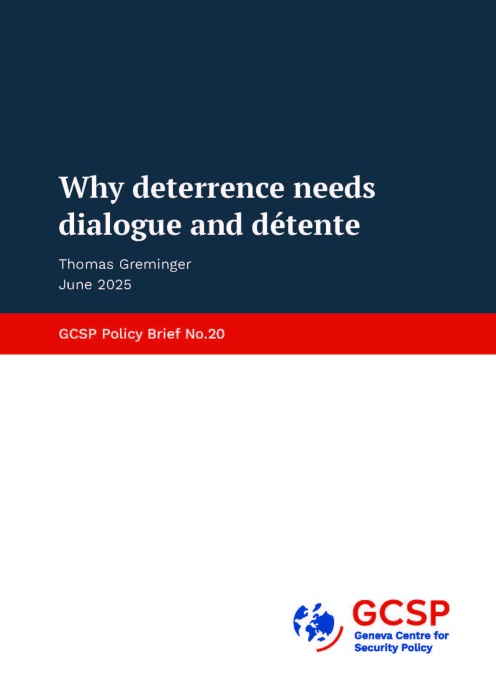Why deterrence needs dialogue and détente
Since at least the time of the Greeks and the Romans it has been conventional wisdom that if you want peace prepare for war. Strong defences, military capabilities and demonstrating resolve can deter an enemy that might have thoughts of attack. American presidents from George Washington to Ronald Reagan (and even Donald Trump) have promoted the security benefits of “peace through strength”. Such logic will no doubt dominate security doctrines for the foreseeable future. But paradoxically, pure deterrence can be potentially destabilizing. Lack of communication with opponents can deepen distrust, create misperceptions and increase the risk of miscalculation. Therefore, at a time of high tensions in international relations, it is vital to retain some aspects of dialogue and détente if deterrence is to be credible and effective.
Disclaimer: This publication was originally published on Place du Panthéon for IHEI Institut des hautes études internationales in French. The views, information and opinions expressed in this publication are the author’s/authors’ own and do not necessarily reflect those of the GCSP or the members of its Foundation Council. The GCSP is not responsible for the accuracy of the information.


